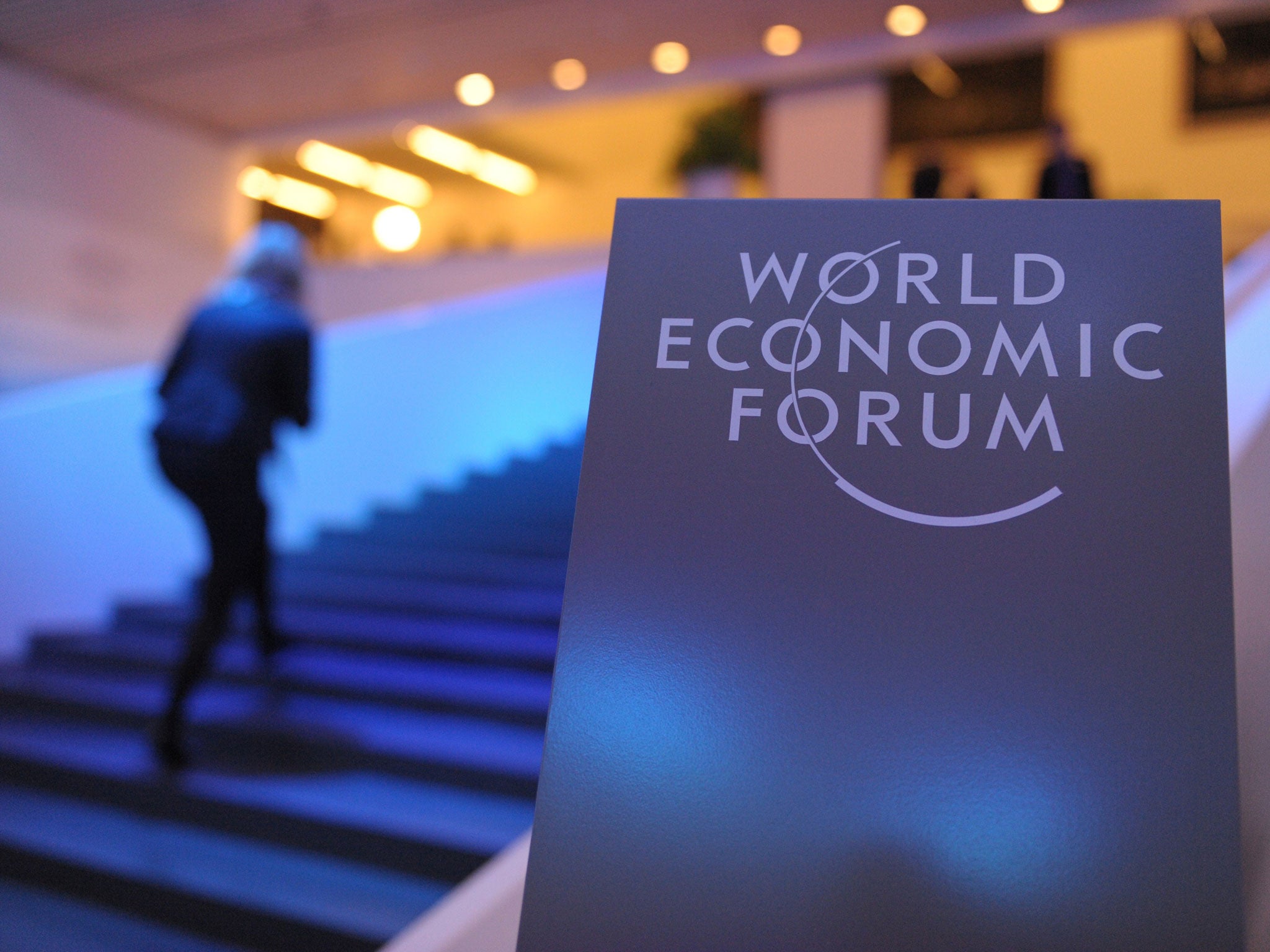Davos 2015: Chief executives more worried than a year ago about future of global economy
The findings of PwC's 18th Annual Global CEO Survey were read out during a press briefing at the World Economic Forum in Switzerland

Business leaders are more worried than a year ago about the future of the global economy, according to survey results that were unveiled at this year’s World Economic Forum.
Fewer chief executives than last year think global economic growth will improve over the next 12 months, according to research by PwC.
However, bosses remain confident in their ability to achieve revenue growth in their own companies.
Just 37 per cent of chief executives think global economic growth will improve in the year ahead, down from 44 per cent last year, and 17 per cent think growth will decline, more than twice as many as in 2014.
But in terms of their own businesses, 39 per cent said they were "very confident" of growing revenues in the next 12 months, an unchanged reading from a year earlier and slightly up from 36 per cent in 2013
The findings of the 18th Annual Global CEO Survey, which saw 1,322 individuals in 77 countries interviewed during the last quarter of 2014, were read out by PwC International chairman Dennis Nally during a press briefing at the annual meeting in Davos, Switzerland.
According to the survey, 59 per cent of bosses think there are more threats to their company now than three years ago, with 78 per cent identifying over-regulation as a key concern. This figure, which is up 6 points from last year, is the highest level seen to date in the survey, with chief executives in the US the most concerned, as well as those in Germany, the UK and China.
Meanwhile, other major concerns centred on the availability of key skills, as well as cyber threats and the lack of data security. Others were worried about geopolitical issues.
"There's a fair amount of concern about the economy," said Nally.
"There's probably more negativity thus far in 2015, which is really a continuation of the theme from the fourth quarter of last year."
The pendulum has swung further away from many emerging markets over the past year, with the notable exception of India, where the arrival of pro-business Prime Minister Narendra Modi has made the country's chief executives the most confident in the world.
Russia, however, has plunged from top of the confidence table a year ago to having the gloomiest business leaders, as a tumbling oil price and Western sanctions take a heavy toll.
Confidence in China, too, is down and the country is no longer the automatic go-to market for multinationals.
Instead, for the first time since the question was asked five years ago, the United States has overtaken China as chief executives' most important overseas growth market.
With the US economy some 7 per cent larger than before the financial crisis and more jobs having been created than were lost, executives see a strong case for investing in a country that remains a hub of technological innovation.
That echoes a report earlier on Tuesday from the International Monetary Fund, which lowered its forecast for global economic growth in 2015 but raised it for the United States.
Additional reporting by Reuters
Subscribe to Independent Premium to bookmark this article
Want to bookmark your favourite articles and stories to read or reference later? Start your Independent Premium subscription today.

Join our commenting forum
Join thought-provoking conversations, follow other Independent readers and see their replies